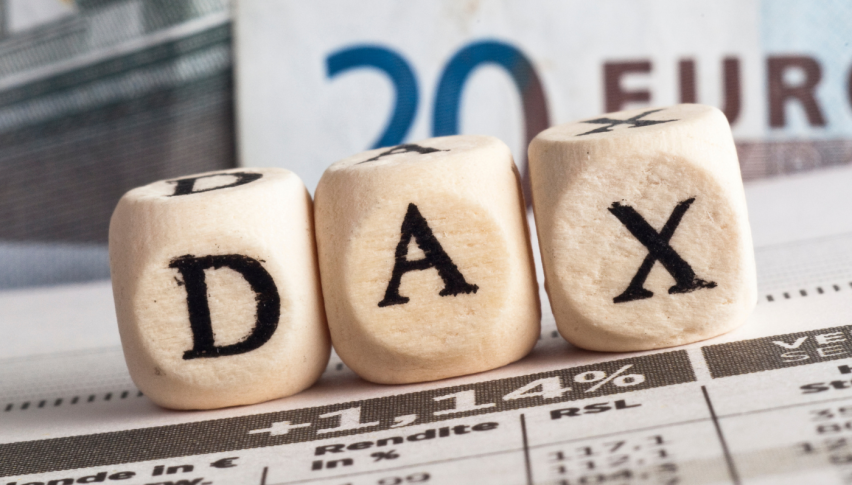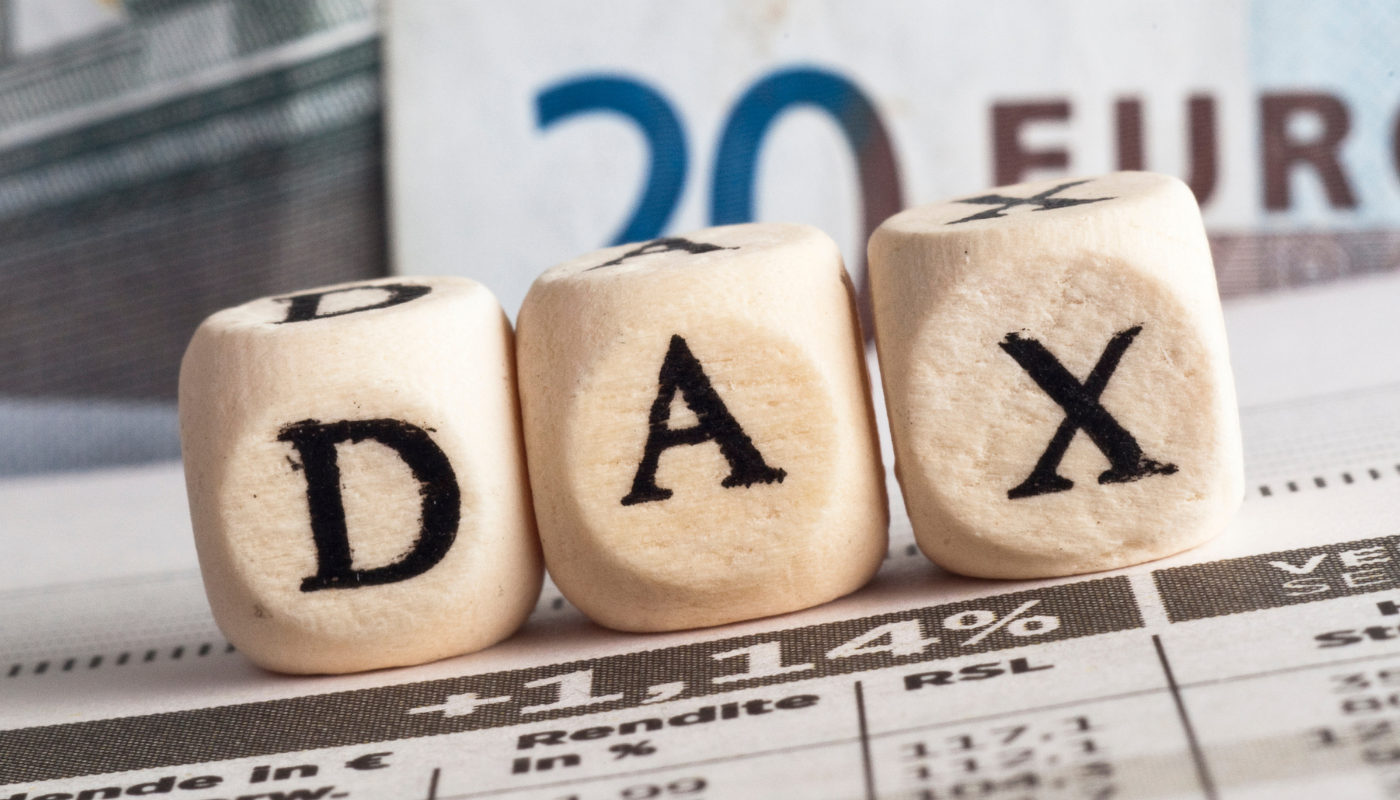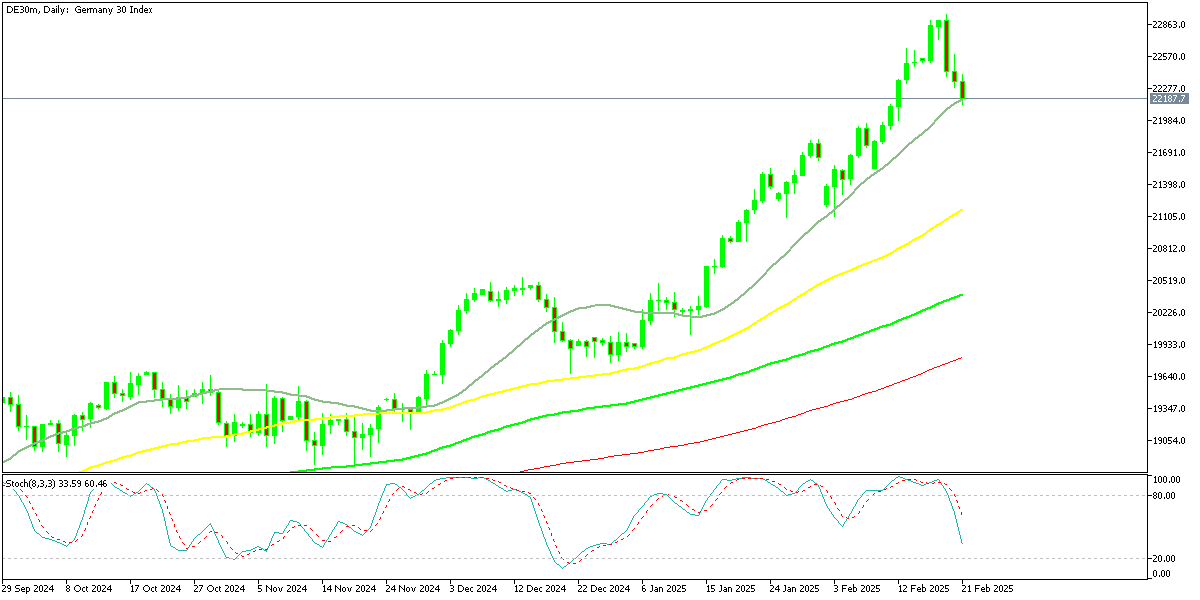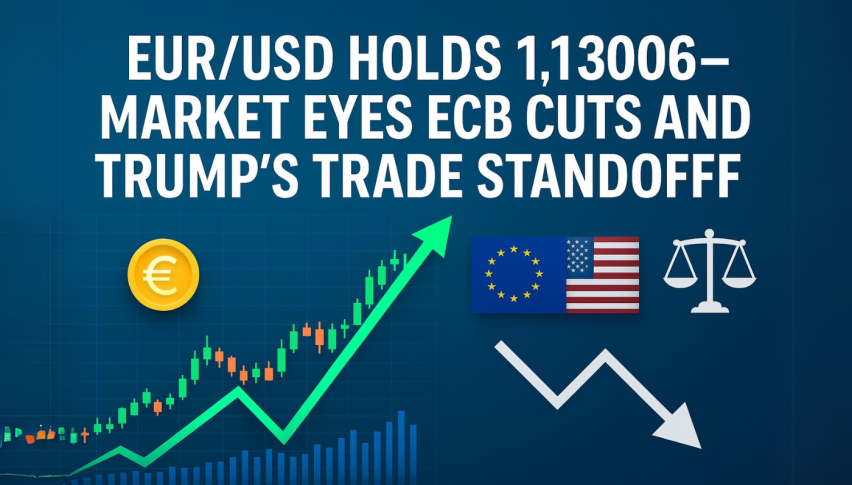DAX 40, EUR: Bullish or Bearish After AfD’s Surge to 20% in Bundestag
German election exit polls show that the AfD party claimed 20% of the votes for the Bundestag, meaning the conservatives with form a ...

Live EUR/USD Chart
German election exit polls show that the AfD party claimed 20% of the votes for the Bundestag, meaning the conservatives with form a coalition, however it’s not certain whether this will be bullish or bearish for the Euro and Dax 40 index in the long term.

EUR/USD has made some gains in the last months, but has been finding it hard to hold the gains above 1.05, with major economic uncertainties in Europe. The main German index Dax on the other hand, has been quite bullish, making record highs, however it lost around 4% in the last three trading days. However, we might see a bullish open tomorrow morning, with the Euro also opening slightly higher during the early Asian trade, but has retraced back down, following the German elections.
German index Dax 40 Chart Daily – Will We See A Bounce Off the 20 SMA?
Germany’s Federal Election: Conservatives Take the Lead
Germany’s Federal election has drawn significant attention, with the CDU/CSU party emerging as the frontrunner. According to exit polls, the party has secured around 28% of the vote, positioning its leader, Friedrich Merz, as the likely next chancellor.
In a surprising shift, the far-right AfD party has doubled its previous election results, capturing around 20% of the vote and securing second place. With more than half of the ballots counted, the current seat distribution in parliament stands as follows:
- CDU/CSU: 208 seats
- AfD: 150 seats
- SPD: 121 seats
- Greens (GRÜNE): 86 seats
Economic Implications and Market Reactions
German economy has been in difficulty, following behind as the slowest-growing economy in Europe. The election results have sparked speculation about possible coalition formations, including a CDU-SPD-Green alliance, which could be seen as market-friendly. As a result, the German DAX and Eurozone stock markets are expected to rise.
One of the key economic debates moving forward will be Germany’s “debt brake” policy, which has been blamed for restricting economic growth, particularly in the struggling industrial sector. A potential reform to loosen debt limits could provide much-needed stimulus, boosting the euro and strengthening European stocks.
Political Uncertainty Could Stall Growth
Despite the election results, Germany could face months of political uncertainty as coalition negotiations unfold. Prolonged discussions to form the next government may delay key economic reforms, further dampening business and consumer confidence. This uncertainty could weigh on economic recovery and increase market volatility until a new administration is established.
Potential Coalition Scenarios and Market Impact
As Germany’s political parties navigate coalition talks, different alliances could shape the country’s economic policies and impact financial markets, particularly the DAX stock index.
CDU/CSU, SPD & Greens: A Market-Friendly Approach
A revival of the grand coalition would likely prioritize tax relief for households and businesses while maintaining current social spending levels. Although a major overhaul of Germany’s debt brake is unlikely, there is room for higher infrastructure and defense funding, which could provide economic stimulus. This scenario would be positive for the DAX, as increased government spending supports growth.
CDU/CSU, SPD & FDP: Fiscal Discipline Over Investment
A coalition including the business-friendly FDP would also focus on tax relief, but with a stronger emphasis on spending cuts. The FDP’s stance on fiscal restraint would likely limit government investment initiatives, reducing Germany’s fiscal flexibility. As a result, this scenario could be negative for the DAX, as reduced public spending might slow economic momentum.
The final coalition decision will play a crucial role in determining Germany’s economic trajectory, influencing investor sentiment and stock market performance in the coming months.
EUR/USD Live Chart
- Check out our free forex signals
- Follow the top economic events on FX Leaders economic calendar
- Trade better, discover more Forex Trading Strategies
- Open a FREE Trading Account





